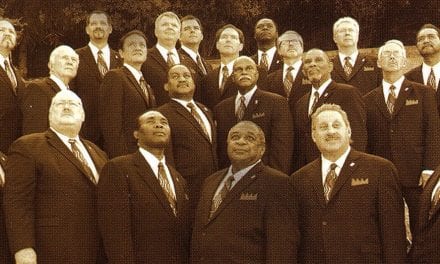Google wants people (some people) to live forever.
Back in October, 2013, Google executive Ray Kurzweil announced that Google has started an initiative that will make it possible for him and others live much longer (forever?). Throughout history, living forever has been the Holy Grail of the wealthy and powerful. This is no surprise, given that what comes along with extreme wealth and power is the (perceived?) ability to control everything, to buy anything, to, in some sense, purchase happiness. The limit to what extreme wealth can buy is that people die and no amount of money can fix this problem . . . though Google seems intent on trying. When the announcement first came out I curated an article about it and added it to my list of things to write about, but ultimately other topics crowded it out.
The Quest Continues
Then, a few days ago, I came across an article titled The Business of Extending Life Goes into High Gear in which Kurzweil propositions the following:
- Over the past several centuries life expectancy has gradually increased.
- In the coming 20 years we can expect life spans to be extended much more rapidly.
- Our ability to improve human health is beginning to move up in an exponential growth curve.
- So, what does all of this mean?
Implications
Google presents an intriguing idea that has fascinating implications for society and senior living. Perhaps it even has moral implications.
Societal Implications
There are huge societal implications that include some significant moral/ethical questions. They include at least these:
- It will undoubtedly be expensive, at least initially, to extend life. If it can be done who will be the ones who benefit? Will it be the wealthy and not the poor? Will it be the smart but not those with lower IQ’s?
- Every human who occupies space on this planet requires stuff that has to be earned or paid for. Covering the costs of people living longer could be a big challenge.
- Where will people live? One might argue that this will not be a problem, at least in the first world, where there are steadily declining birthrates.
- People living longer could easily result in higher healthcare costs over longer periods of time.
- Do we have an obligation to put resources into the poorest of the poor who just struggle to stay alive each day? How does this fit into the “live forever” model?
Senior Living Implications
It is kind of crazy to think about what this might mean to the senior living industry. I can see upsides and downsides:
- It might be that, if people live longer, they would need senior living for longer periods of time, which would be good for the industry.
- If they need senior living longer, there could end up being a significant need for additional care givers.
- It might be bad because there would be more people running out of financial resources.
- It is possible that people would live to be healthier, which would mean that the demand would go down.
So . . . what do you think? A good idea or a crazy idea? Good for our industry or disaster in the making? Do you think it is a good idea? Steve Moran
If you like this article (or even if you don’t) it would be a great honor to have you subscribe to our mailing list HERE









Steve this is all very interesting, but for most of us (dare I say the 99%) it is irrelevant. I can hardly pay my way now, while I’m relatively young and healthy. One of my fears is getting trapped into a medical/legal squeeze play where I won’t be allowed to die. There are worse things than death.
Steve, you present another set of interesting questions! I’ve been a technologist for over 30 years. One important thing I’ve learned is that the progression of technology cannot be stopped. (Can you think of one thing that has been totally stopped in all parts of the world?) Also, with each round of progressions, there are questions just like the ones you’ve asked. When the car came around, it was going to solve the problems of horse traffic and horse pollution. Needless to say, the tradeoff may not have worked out. But would we go back? I don’t think any of us would want that. When penicillin was first created, was it available to everyone? Not so much. Each time a new breakthrough happens, there is a time before it becomes readily available and affordable. But we wouldn’t want to miss out just because it’s not perfect upon its birth. I’m excited for what Google is doing. That’s not to say there won’t be problems or challenges. I just know that 1) there is no stopping progress and 2) we will cross whatever bridges we approach when we get there. One thing I think we should do, particularly in our industry, is to work to influence priorities. For example, I’d prefer that Google spend as much time as possible ensuring that we don’t just add years, but rather healthful years with emphasis on quality as much as quantity. Maybe as an industry we should be asking Google if we can participate as an advisory council as this moves along. Thank you for sharing this forward thinking post!
A highly paid Google executive can probably afford to live as long as he wants to.
But if he wants quality years, he might also consider having some plastic work done…
Hi John . . . maybe, but I am thinking death is sort of this great equalizer that hopefully, even if one is not religious, will provide some incentive to leave a legacy of making the world a better place.
Let’s assume for a minute that the Google executives invent a longevity pill that allows people to live longer but does not improve health, meaning people will live sick much longer. I am not so sure this would be a good thing.
Steve
Athelene, I think you are right technology seems to keep on marching forward and most of the time, at least at first glance it seems to make our lives better. I do think this is likely the generation where we will see technology begin to demonstrate the ugly side.
The most obvious is that we have more obese kids than ever and much of that has to do with the amount of time they spend playing with electronic devices rather than outside and active.
Steve
Amy I am kind of in your boat, that this is likely to be something for the very wealthy. As I get older and have watched some people I know and care for die pretty terrible long deaths I agree that their are worse things than death.
Steve
You are correct, Steve.
We aren’t equipped to handle the unintended consequences.
~JM
I would suggest to all of you to read the book “2030: The Real Story of What Happens to America” by Albert Brooks. Cancer is cured, lifespans increase and then………